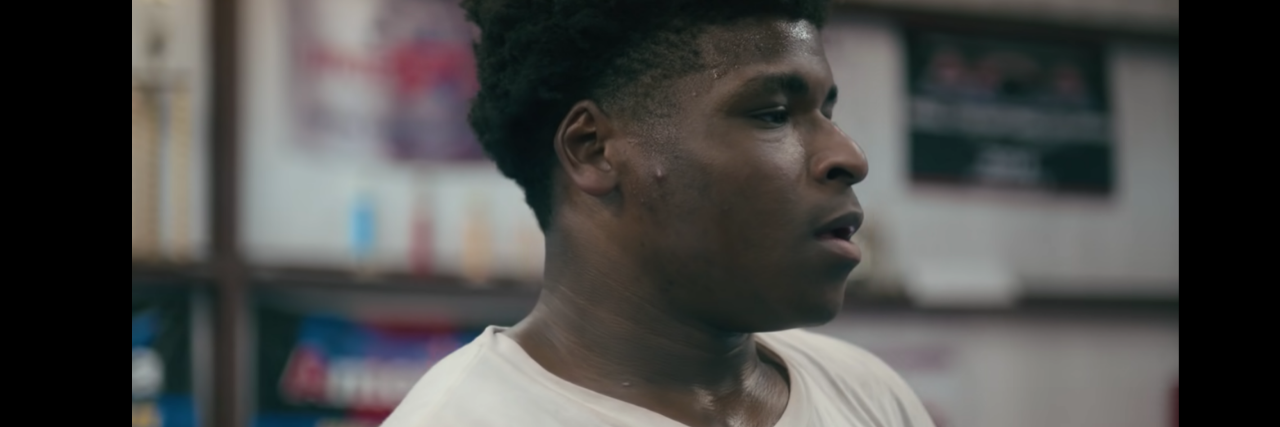3 Things to Remember in Light of 'Cheer' Star's Child Porn Charges
Editor's Note
If you’ve experienced sexual abuse or assault, the following post could be potentially triggering. You can contact The National Sexual Assault Telephone Hotline at 1-800-656-4673.
Fans of the Netflix show “Cheer” are in shock over the arrest of Jerry Harris on child pornography charges. He has been accused of sending and soliciting nude photos to minors and of having sex with a 15-year-old at a cheerleading event in 2019. If convicted, Harris could face up to 30 years in prison.
Fans of the show have responded to the allegations with shock and dismay. For anyone who watched the show, as did I, Jerry seemed to be the most likable character of the whole troop. Enthusiastic, a real team player and extraordinarily hard working, even when he wasn’t on the mat performing, Jerry could be heard encouraging his teammates to be the best they could be. His difficult upbringing made him an even more sympathetic individual. He lost his mother to cancer in 2016 and never had much of a relationship with his father. He credited cheerleading with saving him and it appeared to be the one positive influence in his life.
So how could someone so likable be a sexual predator? The cognitive dissonance is staggering. Or is it? As many have pointed out, sometimes those who look best on paper are the ones who have the darkest secrets.
Jerry Harris getting arrested for production of child pornography is more proof that predators are often the most charming most likable people in the room. I hope we as a society will someday take a look at the reality of the cycles of abuse and begin to ask questions on why.
— Charlene deGuzman (@charstarlene) September 17, 2020
In my own experience as a survivor of child sexual abuse, if you were evaluating my abuser strictly by his likability or respectability, you’d never believe he was capable of doing what he did. He was an engineer at a prestigious engineering firm which held numerous government contracts, made good money, had a lot of friends, was quite popular among those in the community and… was a pedophile. That’s what is so challenging about protecting children from predators. They are difficult to identify and can hide in plain sight under the guise of being otherwise productive members of society.
So then how do we figure out who is a good guy and who is a bad guy? Here are three takeaways:
1. It’s not black or white. People can be seemingly “good guys” and still do bad things. Being a sexual predator can stem from many different factors including being abused themselves as children. In some ways it’s less a moral failing so much as an unhealed childhood wound being carried on to the next generation. That doesn’t condone the behavior or make it acceptable, it’s just an unfortunate fact of life. Hurt people hurt people.
2. Stranger danger is a myth. Most predators are people you and your children know. In fact, the likelihood of a child being abused by a close family member is far higher than of a child being abused by a stranger on a playground. This may be changing somewhat due to the prevalence of social media, but in general it is of utmost importance that parents are aware of everyone who interacts with their child, including relatives, friends, child care and clergy.
3. The best way to protect your child from sexual predators is to educate them about it. There are a number of resources available to parents for age appropriate educational tools teaching body safety, consent and sexual development. Children need to know that they are under no obligation to touch or be touched even if they know someone. Children need to know that their private parts are private and that there is a difference between good and bad touch. And most of all, children need to know who they can turn to if something does happen. In this particular case, it was an involved mother who discovered the untoward messages on her teenager’s phone who ultimately sounded the alarms about the indiscretions Harris had committed.
Finding out that someone you liked or respected did something as reprehensible as sexually assaulting someone or participating in child pornography is never easy. It makes the world feel unsafe and it erodes our faith and trust in humanity. But it doesn’t have to make us paranoid or hypervigilant. It can simply be a reminder to look out for signs of grooming, keep lines of communication open and above all never put blind faith in the goodness of those who hold positions of power, especially where our children are concerned. Make your body safety rules clear to all who interact with your kids and check in with your kids frequently to make sure they know you’ve got their backs.

